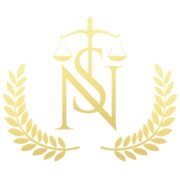Best Mining Law Lawyers in Cebu City
Share your needs with us, get contacted by law firms.
Free. Takes 2 min.
List of the best lawyers in Cebu City, Philippines
About Mining Law in Cebu City, Philippines
Mining Law in Cebu City, Philippines, refers to the collection of national and local statutes, rules, and regulations governing the exploration, extraction, development, and utilization of mineral resources within the city and its nearby areas. The Philippines, as a mineral-rich country, has a comprehensive legal framework to regulate mining activities, primarily guided by the Philippine Mining Act of 1995 (Republic Act No. 7942) and supplemented by local ordinances and environmental laws. Cebu City, as part of a province known for its limestone, dolomite, and other mineral deposits, often encounters legal issues related to mining permits, environmental compliance, and community protections. The local government plays a vital role in balancing mining activities with sustainable development and public welfare.
Why You May Need a Lawyer
There are various scenarios in which you may require legal assistance in the field of Mining Law in Cebu City. For businesses or individuals seeking to engage in mining operations, navigating the multi-layered permit application process can be complex. You may also need legal assistance if you are involved in contractual disputes between landowners and mining companies, experience conflicts relating to ancestral domains or indigenous peoples' rights, or need to address environmental compliance and rehabilitation concerns. Additionally, if you are facing government inspections, sanctions, or criminal charges related to illegal mining, a lawyer with expertise in Mining Law can guide you through due process, negotiations, and litigation as necessary. Local communities or individuals affected by mining operations may also require legal services to address grievances and seek redress for environmental damage or violations of rights.
Local Laws Overview
In Cebu City, Mining Law operates within the broader framework of national policies and local ordinances. Key aspects include:
- Permitting and Licensing: All mining activities require appropriate permits, notably Exploration Permits (EP), Mineral Production Sharing Agreements (MPSA), and Small-Scale Mining Permits (SSMP), which are subject to approval by both national and local authorities.
- Environmental Compliance: The Environmental Compliance Certificate (ECC) is mandatory, requiring thorough environmental impact assessments and rehabilitation plans.
- Local Government Involvement: Cebu City and the Provincial Government have the authority to impose additional restrictions or conditions on mining operations, including taxation, zoning, and environmental ordinances.
- Indigenous Peoples' Rights: Mining on ancestral lands requires Free and Prior Informed Consent (FPIC) from the affected indigenous communities.
- Safety and Health Regulations: Mining operators must comply with occupational health and safety laws to protect workers and communities from harm.
Non-compliance with any of these requirements may result in administrative, civil, or criminal penalties, including suspension of operations and cancellation of permits.
Frequently Asked Questions
What government agency oversees mining operations in the Philippines?
The Department of Environment and Natural Resources (DENR), specifically its Mines and Geosciences Bureau (MGB), regulates mining activities. The local government also has regulatory powers over certain aspects of mining within their jurisdiction.
Do I need a permit to conduct mining in Cebu City?
Yes, all mining activities require applicable permits approved by relevant national and local agencies. Operating without a permit is illegal and may result in severe sanctions.
What are the typical requirements for a mining permit?
You must submit technical, financial, and environmental documents, conduct public consultations, secure environmental compliance certificates, and fulfill other requirements stipulated by the DENR and local authorities.
How long does the permit process take?
Processing times vary depending on the type of permit and completeness of documents. It can range from several months to more than a year due to regulatory reviews and public consultations.
Can foreign nationals or companies engage in mining in Cebu City?
Foreign entities may participate through financial or technical assistance agreements or as minority partners in joint ventures with Filipino-owned corporations, subject to constitutional limitations and local laws.
Are there environmental safeguards in place for mining?
Yes, strict environmental safeguards exist, including mandatory Environmental Compensation Certificates, rehabilitation plans, and continuous monitoring of environmental impacts.
What are the common legal issues faced by mining stakeholders?
Common issues include permit disputes, contractual disagreements, violations of environmental regulations, land ownership conflicts, and concerns from affected local communities or indigenous peoples.
Can local governments ban or restrict mining activities?
Yes, local governments can pass ordinances that regulate or restrict mining activities for environmental, safety, or community welfare reasons, provided they do not conflict with national laws.
How are indigenous peoples’ rights protected in mining areas?
Mining in ancestral lands requires Free and Prior Informed Consent (FPIC) from indigenous communities, as mandated by the Indigenous Peoples’ Rights Act (IPRA).
What steps should I take if I am affected by a mining operation?
You may file complaints with the local government, DENR-MGB, or seek legal assistance to pursue claims for damages, demand stoppage of harmful activities, or negotiate for fair compensation.
Additional Resources
If you need more information or assistance with Mining Law in Cebu City, the following resources may be helpful:
- Department of Environment and Natural Resources (DENR) Regional Office VII
- Mines and Geosciences Bureau (MGB) Region VII
- Cebu Provincial Environment and Natural Resources Office (PENRO)
- Legal Assistance Centers run by the Integrated Bar of the Philippines Cebu Chapter
- National Commission on Indigenous Peoples (NCIP) Regional Office
Next Steps
If you require legal help related to Mining Law in Cebu City, consider the following steps:
- Document your concerns or the details of any issue or dispute.
- Gather all relevant permits, correspondence, contracts, and documentation.
- Consult with a lawyer who specializes in Mining Law or natural resources law. Legal clinics and the local Integrated Bar chapter can help with referrals.
- File any necessary applications or complaints with the proper local or national government agencies.
- Remain proactive in attending hearings, meetings, or consultations related to your case or mining operation.
An experienced legal professional can help you navigate the complex and evolving landscape of Mining Law in Cebu City, ensuring your rights and interests are protected throughout the process.
Lawzana helps you find the best lawyers and law firms in Cebu City through a curated and pre-screened list of qualified legal professionals. Our platform offers rankings and detailed profiles of attorneys and law firms, allowing you to compare based on practice areas, including Mining Law, experience, and client feedback.
Each profile includes a description of the firm's areas of practice, client reviews, team members and partners, year of establishment, spoken languages, office locations, contact information, social media presence, and any published articles or resources. Most firms on our platform speak English and are experienced in both local and international legal matters.
Get a quote from top-rated law firms in Cebu City, Philippines — quickly, securely, and without unnecessary hassle.
Disclaimer:
The information provided on this page is for general informational purposes only and does not constitute legal advice. While we strive to ensure the accuracy and relevance of the content, legal information may change over time, and interpretations of the law can vary. You should always consult with a qualified legal professional for advice specific to your situation.
We disclaim all liability for actions taken or not taken based on the content of this page. If you believe any information is incorrect or outdated, please contact us, and we will review and update it where appropriate.

















